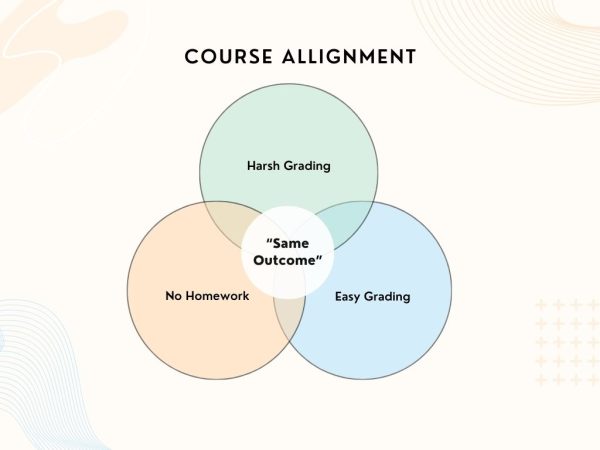The difference between life and death: how students cope with severe allergies
March 15, 2019
Many of us are not used to being cautious regarding the everyday aspects of our lives. We do not think twice about sharing pencils with each other or opening the doors to our classrooms. However, for those with severe food allergies, a simple interaction with even the slightest trace of peanuts or another allergen on any object could be the difference between life and death.
According to Food Allergy Research and Education, roughly 32 million Americans have food allergies, including 5.6 million children. Of those children with food allergies, 40 percent have experienced a potentially lethal reaction such as anaphylaxis, which causes facial swelling, shock and throat closure. Many people that are at risk of experiencing anaphylactic shock carry an EpiPen, a small device that releases epinephrine into the body, reversing the effect of an anaphylactic reaction. To release the epinephrine, they have to stick the EpiPen into their leg.

At risk for anaphylactic reactions, many people with severe allergies carry an EpiPen with them.
Even though there are many challenges with having a severe allergy, people cope with this obstacle in various ways. Seniors Caroline Plocki and Clare Macmillin have severe allergies to nuts, and can both experience anaphylactic reactions. Plocki reacts if she eats peanuts or sesame, and Macmillin reacts to peanuts or tree nuts. Ever since the beginning of their friendship in second grade, Plocki and Macmillin have been able to support each other and understand the challenges of dealing with allergies, which strengthened their relationship.
“Having a serious allergy gave us something to relate to, like, ‘Oh, I can’t go to this or that without my EpiPen friend.’ When we would go to somewhere like Benihana for a birthday dinner, we would always sit together and ask the chef to make sure they used a special oil for us,” Macmillin said. “We’re not just friends because we have this allergy, but it’s helpful when you’re a kid to have that other friend with you, making sure that you’re taken care of.”
While Macmillin is sometimes careless when it comes to the foods she is allergic to, Plocki is very cautious in regards to her surroundings and reactions. In the past two years, according to Plocki, she has become much more alert regarding her symptoms.
“As I’ve gotten older, I’ve come to realize how serious [my allergy] can be, because we’re talking about potential death. I feel like sometimes my trust has been faltering, even with my closest friends, whose houses I’ve been to since I was little, and even though I’ve been to their homes before and survived, now there are times where I’m nervous to eat at their house,” Plocki said.
Plocki believes that this shift in her attitude occurred from one incident when she was on a bus in the Portuguese countryside last summer. On the bus, she ate the breadsticks that her dad handed her; however, after she ate them, she realized they contained traces of sesame, invoking an allergic reaction.
“I think being so isolated when I came to that realization triggered something because all of a sudden, in that moment, it hit me about how serious my allergy is: I could die from this. From then on I realized how scary that could be, how something so minor could have such a large impact on me, and I became more aware of how situations like those are present in my life,” Plocki said.

Growing up together, seniors Clare Macmillin and Caroline Plocki strengthened their friendship through their connection of having severe allergies.
While Macmillin and Plocki deal with their allergies in different ways, their shared experiences and relationship with one another have helped them cope with the struggles associated with their allergies. People manage the obstacles associated with their allergies in other ways as well. Junior Austin Lamar, who is allergic to seeds and soy and can experience anaphylactic reactions to nuts, fish and shellfish, has dealt with his allergies with the support of his family.
According to Lamar, his little brother also has a severe allergy to seafood and his dad was allergic to nuts when he was younger, so they understand the hindrances a severe allergy creates.
“It’s just something that you have to keep an open mind about and laugh … because yes it is serious, [and] everyone knows that I’m allergic to these things, so they won’t ever put me in a position that I will be in danger,” Lamar said.
Despite many people growing up with severe allergies, junior Max Leone recently discovered that he experiences anaphylactic reactions he was running in cross country practice this past winter. According to Leone, someone gave him trail mix before the practice, which contained the nuts Leone later discovered he was allergic to. When he was returning from the run, he fell to the ground.
“I couldn’t see anything and my vision was gone, so my coach called the ambulance. I started bursting out in hives and scratching like crazy, and then I started to feel my throat closing up … By the time the ambulance got to me, my throat was completely closed up, so I started throwing up,” Leone said.
Leone did not carry an EpiPen at the time, so he finally received an epinephrine injection when the ambulance arrived.
“I was really freaking out. Number one, I didn’t want to cause such a big concern because other teams were practicing there as well. I wasn’t sure if I would make it because the last time I had an allergic reaction was when I was five, so I was just super scared,” Leone said.
Now, Leone carries an EpiPen wherever he goes and is much more cautious with what he eats if he believes something contains nuts. This is especially true for Leone at Redwood since he eats at the CEA roughly three times a week. Although Leone is cautious when eating, he believes the CEA could improve their assistance for students with severe allergies.
“For the most part, the CEA doesn’t do a great job of showing what’s in their food, but I’ve eaten there and nothing has happened to me so far. They could do a better job though displaying what the food they serve comes in contact with,” Leone said.

Having support from his family and friends, junior Austin Lamar is able to not worry as much about his allergies.
While those with severe allergies face potentially life-threatening situations wherever they are, it is difficult to tell if someone has an allergy or not. In that sense, according to Leone, students just need to be aware of their surroundings.
“Most of the time, when someone has a really severe reaction, people don’t even know. After my cross country incident, I went to school the next day, and not a lot of people knew what happened to me,” Leone said. “It’s strange how people can’t tell what’s really going on.”
Although those with allergies need to be cognizant with what they touch and eat, it is just as important for friends and family to educate themselves on how to care and support these individuals, from knowing how to operate an EpiPen to being aware of what they are eating.
“It’s nice that when I’m near [close friends and family], I know that I’ll be safe with whatever they’re eating because they know what I’m allergic to and will help me in this process,” Lamar said.






















